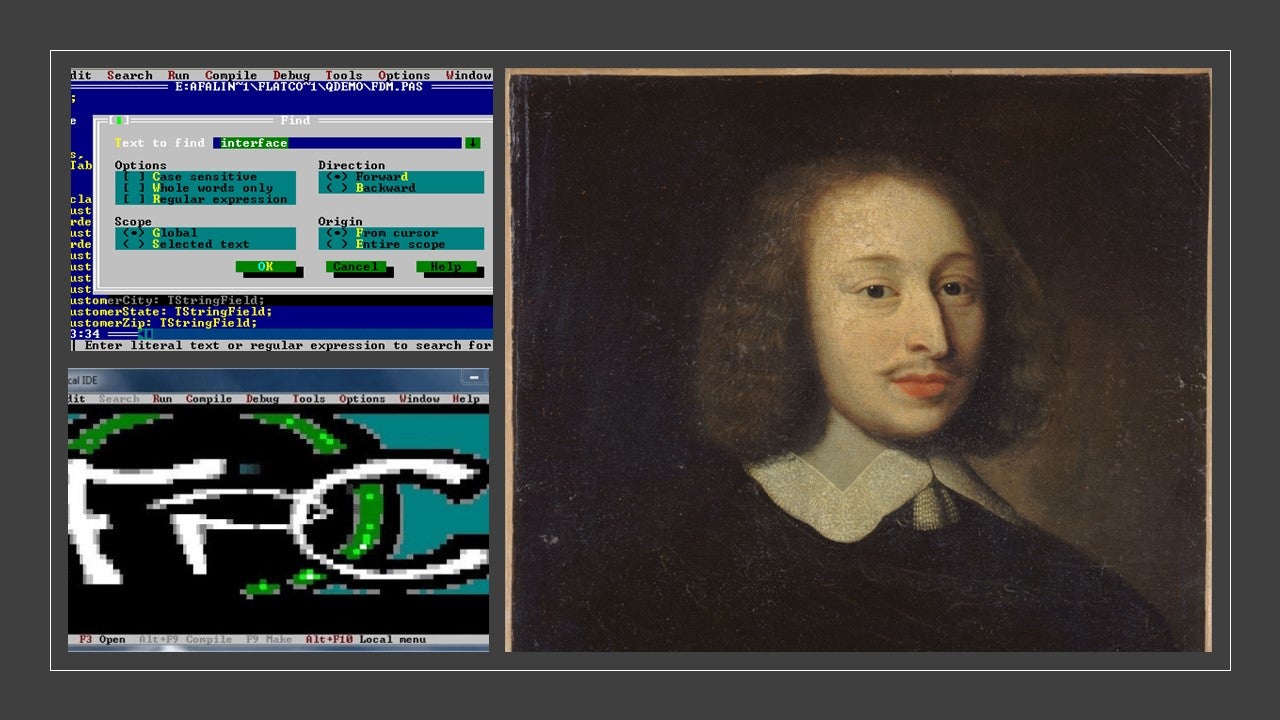Prologue
When we rewind the clock to the late 1960s and early 1970s, Pascal emerges as a beacon in the realm of programming. The name serves as a recognition of Blaise Pascal's contributions to the early concepts of computation and his legacy in the broader field of science. Crafted with finesse by Niklaus Wirth, Pascal wasn't just a language - it was an emblem of a changing tide both in classrooms and cubicles.
By chance, I encountered the Pascal language in the mid-2010s and gained so many experiences in later years, which made this blog series possible. This will be the first blog of the Series, Pascal, Once Upon a Time. I’ll cover many of these topics in future blogs!
The Programming Language Named after the French Mathmatician

Blaise Pascal (1623-1662) was a French mathematician, physicist, and inventor. Among his numerous contributions to mathematics and science, he is perhaps most famous for Pascal's Triangle, a triangular array of binomial coefficients.
In the Halls of Academia
Imagine being a computer science student in the early 1980s, enrolled in one of the intro to programming courses. Instead of DrRacket @UWaterloo (Learn more about Racket), or Python, C, and Java, your first programming language would likely be Pascal. Its neat syntax and structured methodology made it the darling of many educators. It wasn’t just about writing code; Pascal was teaching students the art of structured thinking. Plus, the whole notion of strong typing (learn more about strong typing here). Pascal was the cool professor who taught us how to avoid tripping over those pesky runtime errors.
And of course, the textbooks (Check the old Pascal textbooks in our collection)! Rows upon rows of them, proudly displaying Pascal code, guiding students and researchers alike.
e.g.: Stay tuned, and there will be more about what happened in Academia with Pascal, especially at UWaterloo in the coming blogs.
When Pascal Met the Real World
On the industrial front, Pascal was the quiet genius in the corner. Sure, it didn’t dominate the scene like some others, but when Apple's early Macintosh whispered its first 'Hello,' it was Pascal running in its veins.
ThenBorland introduced Turbo Pascal for personal computers. Suddenly, Pascal was everywhere! This wasn't just a programming tool; it was a revolution, democratizing programming for the masses. But as with all stories, characters evolve. Turbo Pascal matured and became Delphi, blending the charm of Pascal with the power of object-oriented magic. Delphi marked a significant leap, allowing developers to create more complex and graphical applications. It was not just a language but an entire ecosystem, fostering a new generation of software development. (Learn more about Delphi's evolution here).
Yet, every era has its end. The sun began to set on the Pascal age in the late 1990s, making way for languages like C and C++ to bask in the limelight. The winds of UNIX also swept through, shifting the industry's favour. UNIX, a powerful multi-user operating system known for its robustness and flexibility, favored the C programming language for its efficiency and low-level capabilities, particularly suited for system-level programming. This preference for C in UNIX environments contributed to the gradual decline of Pascal in professional and industrial contexts. The winds of UNIX, with their emphasis on performance and versatility, were a testament to the ever-changing nature of the computing world, where new challenges often lead to the adoption of different tools better suited to the tasks at hand.
Echoes of the Past in Today's Code
While Pascal might not be the superstar today, its legacy is undeniable. It sculpted minds, influenced design principles, and left footprints in the sands of programming that can still be traced in today's code paradigms. So, here's to Pascal - a legend in its own right!